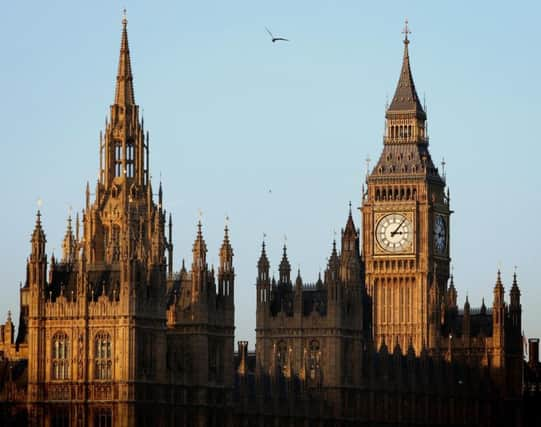Greg Wright; Why it’s time to suspend a loan charge which is causing agony for thousands of people


But there was nothing frivolous about the debate that was rudely interrupted by water cascading from the chamber’s roof. MPs were delivering a devastating analysis of the loan charge, a measure which critics claim breaches the rule of law and is pushing victims to the brink of suicide.
The motion under discussion, which had been moved by Ross Thomson, the Conservative MP for Aberdeen South, called for an immediate suspension of the loan charge for six months. It also demanded an independent inquiry into the loan charge to be conducted by a party that is not connected with either the Government or HMRC.
Advertisement
Hide AdAdvertisement
Hide AdThe motion expressed “deep concern and regret” about the effect of the mental and emotional impact on people facing the loan charge. It argued that the loan charge is fundamentally unfair and undermines the principle of the rule of law by “overriding statutory taxpayer protections”.
Mr Thomson said: “Many of my constituents working in the oil and gas industry were actively encouraged by their companies and professional advisers to enter into these schemes, without a single peep from HMRC, and some did so for many years.
“The behaviour of some, particularly on the Government side, is making people feel like criminals, and this has driven them to a place where they feel broken, mentally and emotionally. Nobody should be in any doubt that the loan charge has left people living in genuine fear of losing their homes, being unable to care for their families, and seeing their life’s work reduced to less than nothing.”
The loan charge was introduced in response to the Treasury’s concerns about “disguised remuneration schemes” which involved individuals being paid through loans, usually via an offshore trust in a low or no tax jurisdiction, which they did not have to repay.
Advertisement
Hide AdAdvertisement
Hide AdPerhaps the most telling points in the debate were made by Justine Greening MP, who questioned why HMRC does not appear to be targeting the companies who provided these tax planning schemes. Instead they are focusing on the individuals who used them.
She added: “Sadly, there are still people joining these schemes today, unaware of the impact it is likely to have on them. HMRC’s approach to the loan charge has been punitive rather than proportionate.
“For some constituents it has essentially grouped up to 20 years of charges and lumped them into one big sum that they are now being asked to pay.”
Since I first started covering this story, I have been inundated with messages from people who say they are facing ruin because of the loan charge.
Advertisement
Hide AdAdvertisement
Hide AdOne man told me that the loan charge was “pushing many innocent people to financial ruin and bankruptcy, not to mention ill health through stress, relationship breakdown and in some cases suicide”.
The man said: “I too have been innocently caught up in this turmoil, which totally goes against the rule of law. I was forced down this route in order to get paid and put food on the table for my young family, but was comfortable in the knowledge that these declared loans were totally legal, HMRC compliant and QC approved.
“What confidence has any citizen got in the taxation system if HMRC, can change the law and then introduce retrospection?”
Parliament has heard evidence that many people declared these arrangements to the HMRC, who did not challenge them at the time.
Advertisement
Hide AdAdvertisement
Hide AdThe Treasury says the loan charge means that people who paid themselves through loans will have to contribute their fair share to pay for our public services.
But it seems preposterous that people who sold these schemes became rich while the people who took part in them are facing ruin.
And as Ms Greening has observed, many people declared these arrangements transparently. They sent in tax returns and did not receive a warning that the HMRC might look at this issue again.
It’s time to pause for breath. If the case for the loan charge is so strong, what has the Treasury to fear from an independent inquiry?